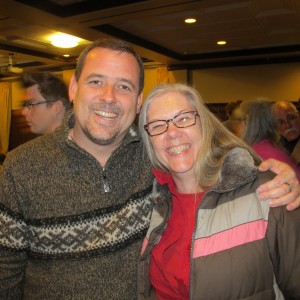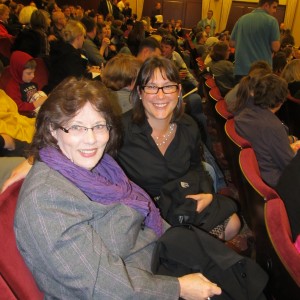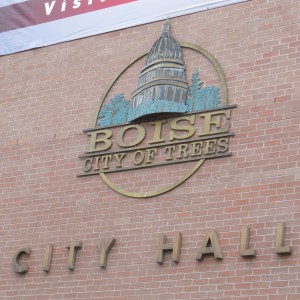This year’s elections in the United States proved a favorable turning point in the long struggle for LGBTQ equality. Our country re-elected a president who favors equal rights for the LGBTQ community. Voters in three states, including Washington, approved marriage equality bills. Now, the city councils of Boise, Idaho and Helena, Montana are poised to pass citywide ordinances protecting their LGBTQ residents.
States like ours can sometimes feel light-years away from the progress in more urban, populated states. But Boise and Helena, both state capitals, are expected this month to pass citywide non-discrimination ordinances that include protections in employment, housing, and public accommodations based on sexual orientation and gender identity/expression, showing that momentum for LGBTQ equality is not confined to the coasts.
The path toward change
The Boise ordinance was slated for a third and final reading December 4, while the Helena City Commission was expected to take up its ordinance at a public hearing December 3. Both ordinances would go into effect in January, making both cities the second in their states to do so, following Missoula, Montana and Sandpoint—a rural town in north Idaho.
“Our community’s success hinges on the success of every citizen,” said Lauren McLean, a Boise city councilwoman who has advocated for the ordinance’s adoption over the last several months. “When we have fellow citizens burdened by discrimination, we must respond. Discrimination, in any form, tears apart the very foundations of our community. It’s a moral imperative that those who can take steps to end it. This ordinance makes clear that in Boise we will not tolerate discrimination against anyone.”
In Helena, hundreds of people have turned out at every stage of the ordinance process, organizers say. Despite the city’s small population of 28,000, Jamee Greer, LGBT Organizer at the Montana Human Rights Network, said more than 200 people have volunteered on the campaign by making calls and mailing postcards in support. He’s also collected more than 3,000 signatures from equality-minded people, including more than eighty business and faith leaders.
“The last administrative meeting in November was the moment when everything changed,” Greer said. “Some 60 people stood in this cramped room for two and a half hours to show their support, and there wasn’t even time for everyone to speak.”
Community testimony
Helena resident Bobbie Zenker is a member of the Pride Foundation’s Leadership Action Team in Montana and the first openly trans attorney in the state.
“Unlike many transgender people, I have a secure, good-paying professional job,” Zenker said. “While I experienced a lot of discrimination getting here, I probably do not experience much discrimination now. It would signify that the community in which I reside, shop, worship, and play places value on diversity, equality, inclusion, openness, and affirmation of all of our neighbors.“
Chris Cooke, a Pride Foundation volunteer and Idaho LGBTQ activist, was among the nearly 400 people who attended the Boise council’s first reading of the ordinance on Nov. 13, and offered testimony in support of it.
“As a longtime activist who has been frequently discouraged by Idaho and other policies nationwide, I was overwhelmed with gratitude. Score one for the good guys,” Cooke said. “And while our work is far from over, it will be one less thing to worry about. For anyone who knows what it’s like to hide your identity, and your essence, it’s like waking up to an entirely different world, one just that more accepting of you.”
Mistie Tolman, a Pride Foundation 2012 scholar and spokesperson for Add the Words Idaho, a grassroots movement working to get the Idaho Legislature to include “sexual orientation” and “gender identity” in the Idaho Human Rights Act, also testified at the Nov. 13 meeting.
“I am just so thankful to the Boise City Council for making me and the rest of the LGBTQ community feel like we matter enough, just for being a human being, to be worth having this open discussion about protections that all people deserve,” Tolman said. “It sounded so heart-warming to have them get it—that this is about fairness and quality of life.”
The ACLU of Idaho, a Pride Foundation grantee this year, helped the Boise council with legal research, technical assistance, data collection, and answering questions along the way as the ordinance was being drafted. Josh Parrish, a 2012 Idaho scholar, assisted the ACLU with that work over the summer as part of the Pride Foundation Fellowship Program, meeting with religious leaders to address concerns about the ordinance and educate them about its religious exemptions.
“Ultimately, city leaders need to make the decision on whether to propose an ordinance and organize an enforcement model that works for their city,” said ACLU of Idaho Executive Director Monica Hopkins. “Undoubtedly, cities like Sandpoint and Boise illustrate how these ordinances can be put into place—and that in the end they protect all the citizens of a city, because everyone has a sexual orientation and everyone has a gender identity.”
The next steps toward equality
The Helena and Boise ordinances have taken nearly a year of work, with progress in Helena delayed by a vacancy in the city attorney’s office . The Helena ordinance process was further delayed when commissioners questioned whether it was needed given an Equal Employment Opportunity Commission ruling that offers limited employment protections to transgender people.
A third Idaho city, Pocatello, and Bozeman, Montana, have also started exploring the idea of implementing citywide LGBTQ non-discrimination ordinances, and their city leaders will likely be watching what happens in Boise and Helena.
For McLean, she said the Boise ordinance presents the opportunity for the city to introduce policies and make decisions that make the city an even safer, healthier, and more livable community—one that treats everyone equally, provides a great quality of life for all citizens, and makes economic opportunity available to everyone.
“That’s what Boise is, and that’s what Boise will do,” she said. “If we do this well, and we do it right, then everyone in our community can fully contribute, and everyone in our community has the economic opportunities we need to succeed.”
Caitlin Copple is Pride Foundation’s Regional Development Organizer in Montana. Email Caitlin. Steve Martin is Pride Foundation’s Regional Development Organizer in Idaho. Email Steve.


